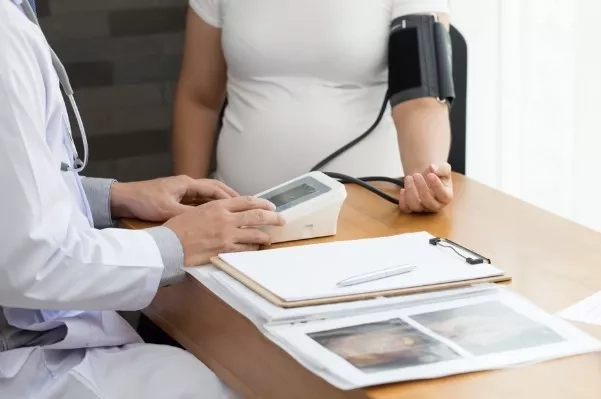High blood pressure in pregnancy
By Dr. Jonathan Wee
Consultant Obstetrician and Gynaecologist
MBBS (S'pore), MRCOG (UK) M MED (O&G) (S'pore), FAMS (O&G)
What you need to know to protect yourself and your baby
High blood pressure, or hypertension, can be present in a few different ways during pregnancy. It's one of the most common health problems during pregnancy, causing problems in up to 15% of cases. If you have or develop high blood pressure in pregnancy, you are likely to require special care during your pregnancy and should go for regular follow-up with your obstetrician. Here are some facts that you need to know to take care of yourself and your baby.

What are the different types of high blood pressure during pregnancy?
1. Chronic Hypertension
Chronic hypertension is high blood pressure (usually more than 140/90 mmHg) that was present before pregnancy or shows up in the first 20 weeks of pregnancy. It usually carries on after delivery.
2. Gestational Hypertension
Gestational hypertension (or pregnancy-induced hypertension) is high blood pressure that develops after 20 weeks of pregnancy without significant protein in the urine or other signs of organ damage. This transient hypertension usually goes away after delivery.
3. Preeclampsia
This is a serious condition in pregnancy which can arise from both chronic hypertension and gestational hypertension. Symptoms include high blood pressure and protein in the urine, and it is occasionally associated with other signs of organ damage. Left untreated, it can give rise to serious complications for both mother and baby.
What are the problems with regards to high blood pressure in pregnancy?
Untreated or poorly controlled hypertension or preeclampsia in pregnancy can lead to serious risks.
1. For the mother
Mothers can be at risk of damage to their kidneys and liver, stroke, blood clotting problems, as well as bleeding from the placenta. There is also the risk of preeclampsia leading to eclampsia, which is an acute and life-threatening complication that is characterized by seizures and possibly coma in pregnancy.
2. For the baby
Your foetus can be at risk of poor growth, an increased risk of premature delivery and stillbirth, and premature separation of the placenta from the inner wall of the uterus before delivery, also known as placental abruption.
Who is more likely to develop high blood pressure in pregnancy?
Here are some of the risk factors for developing high blood pressure in pregnancy and preeclampsia.
- Women in their first pregnancy
- Women who had high blood pressure or any hypertensive disease in a previous pregnancy
- Women with a first degree relative who had high blood pressure in pregnancy
- Women with twins or other multiple pregnancies
- Women above the age of 40 or under 20
- Women who are overweight
- Women with chronic kidney problems or diabetes
- Women whose last pregnancy was over 10 years ago

Recent Blog Posts
- 01 Aug 2025
- 02 Jun 2025
- 28 Mar 2025
- 10 Nov 2023
- 19 Oct 2022
